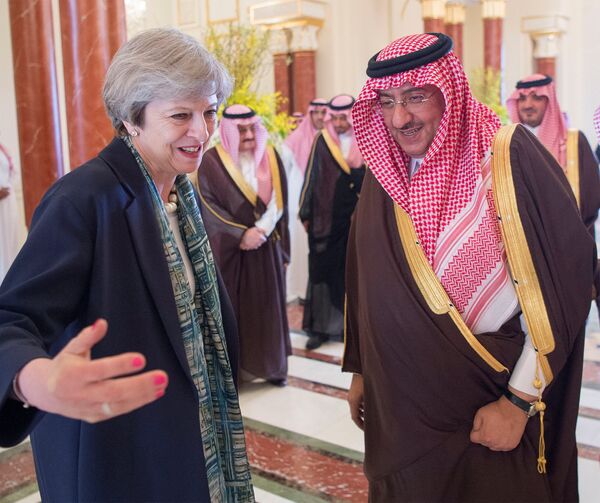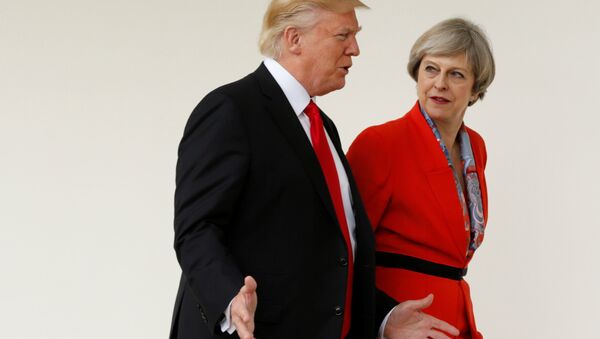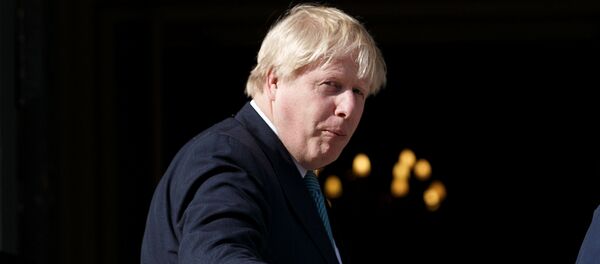"We can no longer assume America will set the tone for the West's relationship with the Middle East," said Lord David Howell, chairman of the British parliament's House of Lords International Relations Committee.
The committee's report invokes old questions on the nature of the so-called "special relationship" between the United States and the United Kingdom, and who tends to benefit from it. Major General Chris Hunter, a former British Army counterterrorism expert, suggested that its about time the UK took a foreign policy course independent of the United States.
'We need a new UK #MiddleEast strategy that reflects the new reality in the region' our report out today recommends https://t.co/68pW2CZO0b
— Lords Int Relations (@LordsIRCom) May 2, 2017
"It's foolish for anybody to automatically align themselves with any other country. Clearly when there are shared interests and when they are your allies, then you have to come together and support one another, but it doesn't mean that you have to roll over onto your back and be told what to do and pushed around. I think the United Kingdom is always known as the unsinkable aircraft carrier for the United States. The special relationship has to be a two-way relationship. When there are areas of contention, that's when we have to be prepared to stand up and say we are not prepared to support you on this," Major Chris Hunter said.
The committee, which is made up of former cabinet ministers, foreign policy advisers and diplomats, made the argument that its position stems from "the mercurial and unpredictable nature of policymaking by President Trump." The report also expounded the concern that the administration's unpredictability has, "made it challenging for the UK government to influence US foreign policy."
The committee also called upon Britain to forge new alliances, and strengthen old ones, particularly in the Gulf region where the UK government is working to secure a number of trade deals as the Brexit era looms.
"In a world less automatically dominated by the US underpinning security in the region, it is no longer right to have a stance at every stage of 'if we just get on with the US everything will be alright,' " said Conservative Party former cabinet minister Lord Howell, who sits on the committee.
Lord Howell embellished his remark by adding that the US under the Trump administration is a "wild card."
The committee also castigated the UK reaction to the Arab Spring as "muddled," and its policy in Syria as being in "confusion and disarray."
The report attempted to qualify the claim by highlighting the UK government's habit of supporting ruling regimes in some cases, and revolutionary forces fighting those regimes in others.
"In the Gulf states, it [UK] has continued to favor the stability offered by hereditary family rulers, and undergirded a system of authoritarianism. By contrast, in Egypt and in Syria, British policy has, at times, sided with the revolutionary movements against the old regimes," the report said.
In a rare move, the report called for the suspension on the sales of certain munitions to Saudi Arabia if the ruling Saudi government does not become more transparent about how UK weaponry is being used.
Some might find it hard to believe that the UK government could make such a epochal break from its previous foreign policy positions in the Middle East, particularly toward steadfast allies like Saudi Arabia.

When asked if he thinks any of the policies proposed in the new report by the House of Lords could be implemented, Major Hunter told Sputnik:
"I think certainly. We're going to revise our previous actions in the Middle East and our policies there. We know, that it hasn't worked, So I think we need to look at it more carefully. We need to become more educated, and we need to be more intelligent in our policy-making. We need to think about the way we offer understanding and support and empathy to these countries so we can come to a mutual solution."
In response to the report, a spokesman from the UK Foreign Office is reported as saying: "the Middle East remains a foreign policy priority and the UK will continue to work with international partners to achieve security and prosperity."



